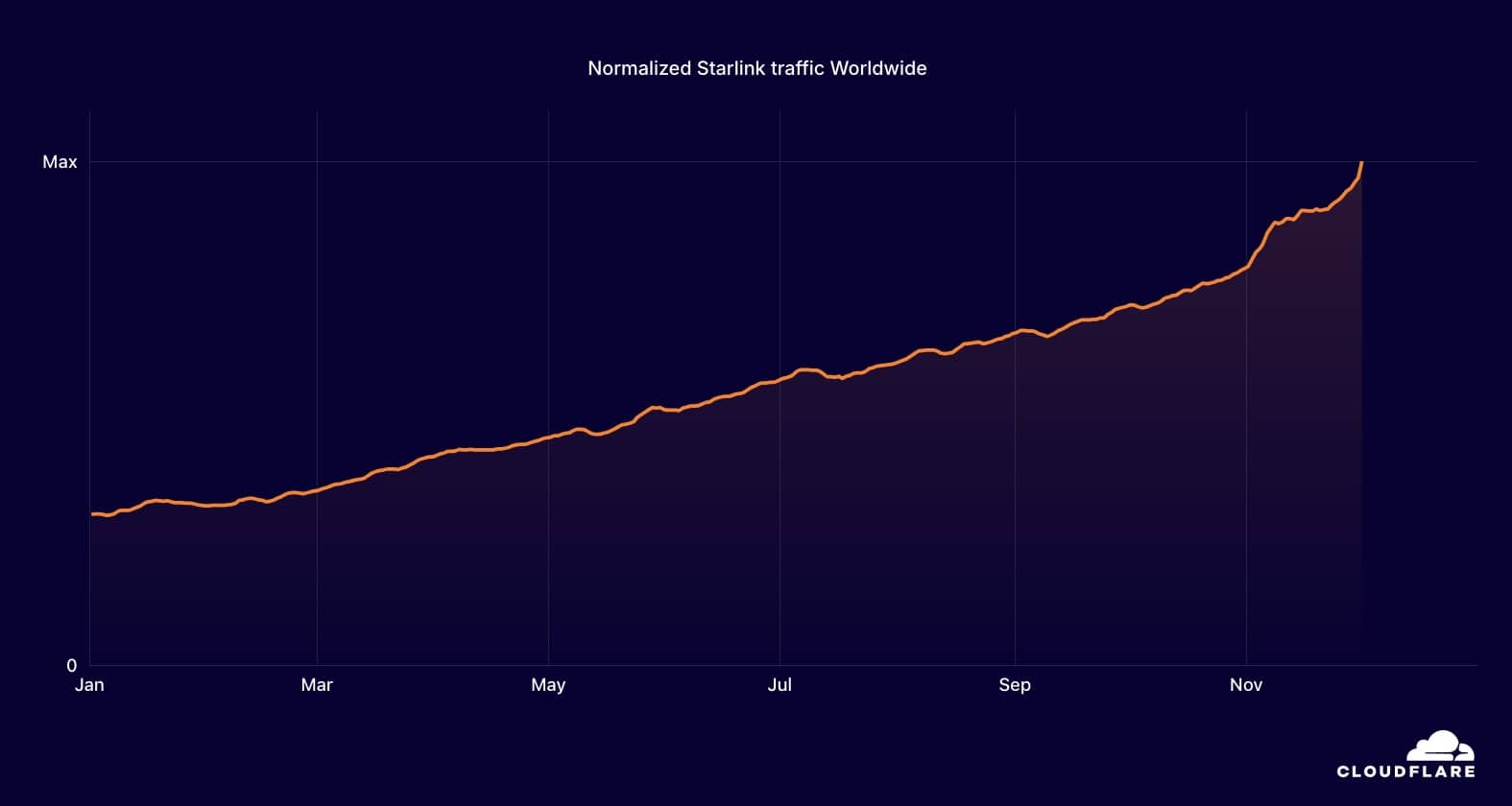The Year in Review 2024 report by Cloudflare Radar provides a comprehensive analysis of global Internet trends, highlighting a significant 17.2% increase in global traffic compared to the previous year. This growth has been fueled by the expansion of satellite connectivity services, the adoption of advanced technologies like post-quantum encryption and the HTTP/3 protocol, and the increasing use of mobile devices and IPv6. The report also addresses key issues such as network security, persistent threats, and the dominance of digital services.
Global traffic growth and satellite connectivity
Global Internet traffic continued its upward trend, growing by 17.2% in 2024. Notable cases include Guinea in West Africa, which experienced a 350% increase in traffic. In contrast, countries like Cuba faced significant disruptions due to power outages and damage caused by Hurricane Rafael. Government-directed Internet shutdowns, such as those in Bangladesh during student protests in July, also had a notable impact.

SpaceX’s Starlink satellite Internet service played a major role, tripling its global traffic. In Spain, traffic grew 8.5x, driven by improved connectivity in rural and underserved areas. Countries like Malawi and Georgia saw usage increase by 38x and 100x, respectively, reflecting the growing demand for alternative connectivity solutions in emerging markets.
Most popular digital services
In 2024, Google solidified its position as the most popular Internet service in Spain and globally, followed by Facebook, Apple, TikTok, and Microsoft. Generative AI continued to set trends, while interest in the metaverse waned. The ranking of the most popular Internet services in Spain is as follows:
Technological adoption: HTTP/3 and post-quantum encryption
In 2024, 20.5% of global web requests used HTTP/3, an increase from the previous year. This protocol, based on QUIC, enhances connection speed and security. In Spain, 26.7% of traffic is already utilizing HTTP/3, surpassing the global average.
Additionally, 13% of global TLS 1.3 traffic adopted post-quantum encryption, a technology designed to protect data against future advances in quantum computing. This growth was driven by browsers like Chrome and Mozilla Firefox, which have begun implementing these measures by default.
Connection quality and IPv6 adoption
Spain stood out for its leadership in connection quality, with average download speeds exceeding 292 Mbps and low latency that ensures a smooth user experience. Regarding IPv6, while 28.5% of global traffic now uses this protocol, Spain remains behind with only 9.8% dual-stack adoption. Globally, India leads with 68.9%, followed by Malaysia with 59.6%.
At Stackscale, we are also committed to promoting the transition to IPv6. Since our inception, we have offered full IPv6 support for all customers looking to deploy their services with this technology.
Security and persistent threats
The report highlights that 6.5% of global traffic was mitigated by Cloudflare’s security solutions, including Distributed Denial of Service (DDoS) attacks and advanced firewall rules. The United States accounted for more than one-third of bot traffic, while the gaming and gambling sector was the most attacked in 2024, overtaking the financial sector, which led in previous years.
The Log4j vulnerability, discovered in 2021, remained one of the most exploited threats, surpassing the frequency of other critical vulnerabilities discovered this year.
Conclusion and outlook for 2025
The Year in Review 2024 report from Cloudflare highlights how government policies, technological innovations, and persistent threats continue to shape the global Internet ecosystem. With accelerated technological adoption and evolving security challenges, the report provides valuable insights for companies and governments to design more effective connectivity and protection strategies for the future. Cloudflare Radar positions itself as an essential tool for monitoring these trends and paving the way for a safer, faster, and more accessible Internet.




